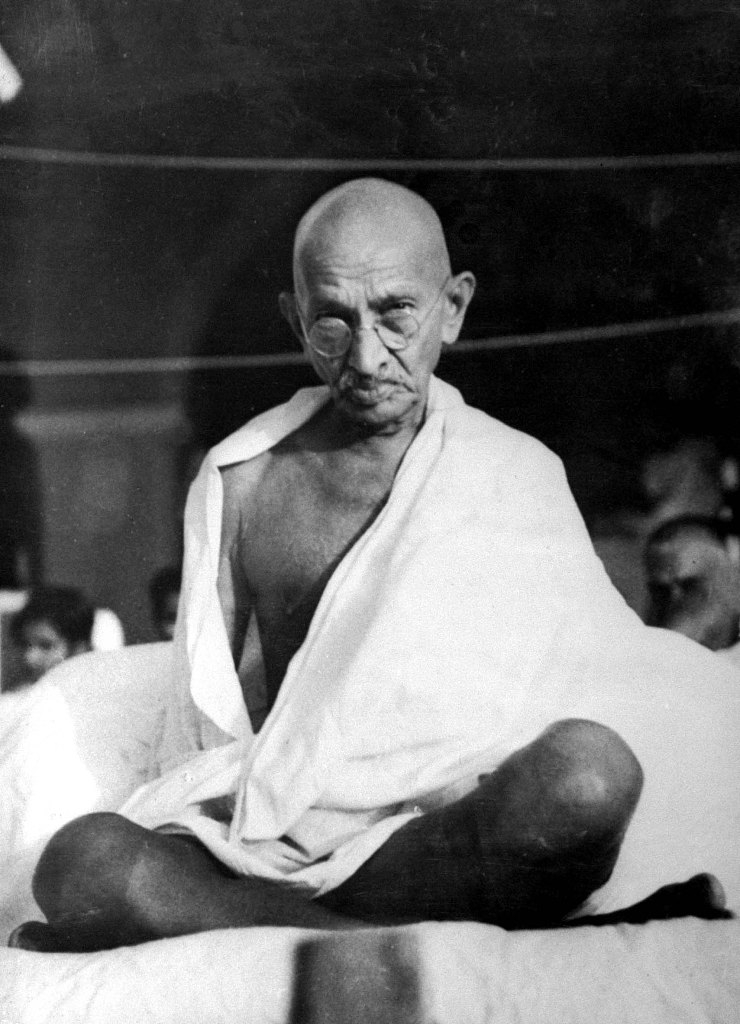
Mahatma Gandhi sitting cross-legged at a prayer meeting. /File photo via VCG
Mahatma Gandhi sitting cross-legged at a prayer meeting. /File photo via VCG
Some of the mortal remains of Mahatma Gandhi were stolen on his 150th birth anniversary from Bapu Bhawan memorial in Rewa district of Madhya Pradesh, central India. The remains had been kept at the memorial for the last 71 years. The thieves also wrote "rashtra virodhi" in Hindi, which translates to "anti-national," across the memorial photograph of the leader. A case has been filed by police and an investigation is ongoing.
"This incident for me is violating. When I read about it…I felt it was disturbing, we were all on a high on the celebrations and at the end of the day we came to know about this. It's not just this incident, it's the game plan behind such incidents. The violation is not an act of these vandalizers, it's the hypocrisy by people who pay homage to Bapu [Hindi word for father] and then indulge in a campaign against him. I feel violated," said Tushar Gandhi, the great-grandson of Mahatma Gandhi and founding president of Mahatma Gandhi Foundation, speaking exclusively with CGTN Digital.
"It's not about making accusations, it's evident who is behind this. It's the right-wing extremist group which has always been behind the campaign to malign Bapu and his legacy."
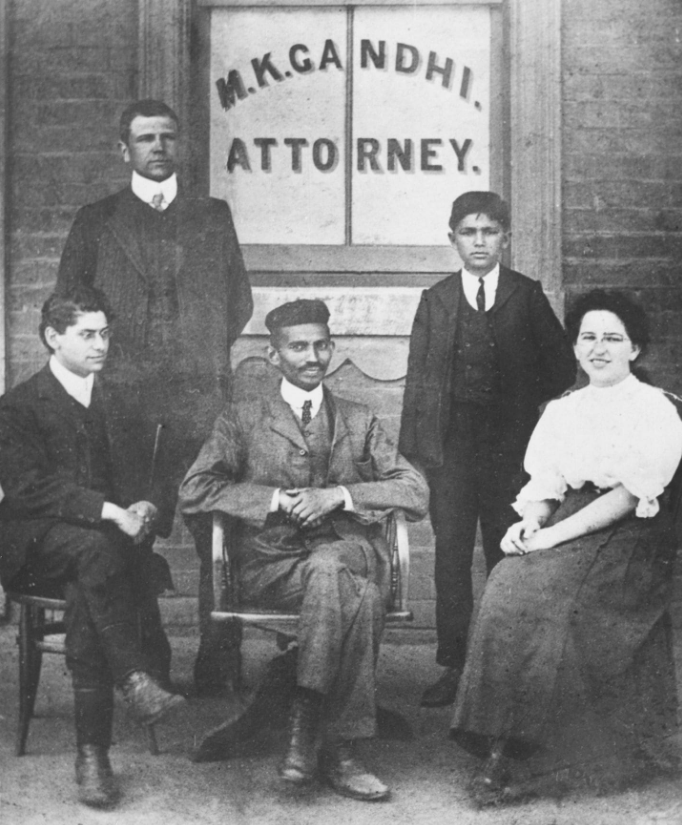
Mohandas Karamchandra Gandhi (C) with workers in his law office in Johannesburg, South Africa, in 1902. /AP Photo
Mohandas Karamchandra Gandhi (C) with workers in his law office in Johannesburg, South Africa, in 1902. /AP Photo
Gandhi, born as Mohandas Karamchandra Gandhi in 1869, was a lawyer, social activist, politician, and a writer. He became the leader of the nationalist movement against the British rule in India through his doctrine of "satyagraha," which means "holding onto truth" with non-violence. In 1914, his supporters gave him the title of "Mahatma" which translates to "great soul." Gandhi was the central figure in India's independence struggle which it won on August 15, 1947 against the British. Just a few months later on January 30, 1948, he was shot dead at point-blank range by a Hindu extremist named Nathuram Godse.
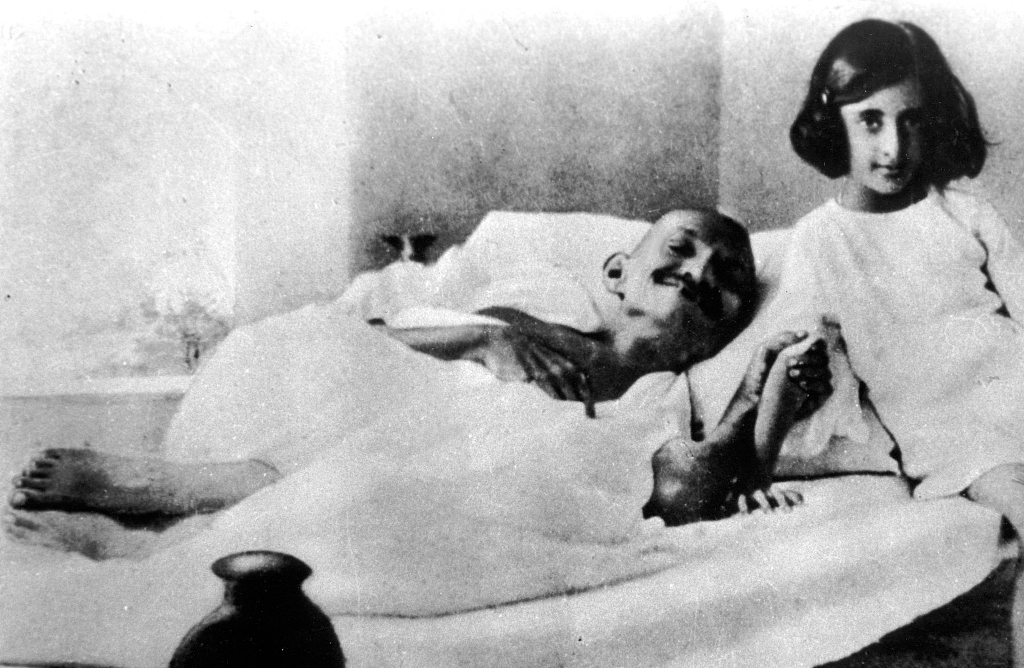
Mahatma Gandhi during a hunger strike is accompanied by Indira (Nehru) Gandhi, the daughter of Jawaharlal Nehru. Indira Gandhi later became Prime Minister of India. /VCG Photo
Mahatma Gandhi during a hunger strike is accompanied by Indira (Nehru) Gandhi, the daughter of Jawaharlal Nehru. Indira Gandhi later became Prime Minister of India. /VCG Photo
After his death, his ashes were not scattered in a river in accordance with Hindu rituals. Instead, several urns containing his ashes were dispatched to his followers to be displayed at memorials across the country.
In 2007, the United Nations declared October 2 as the International Day for non-violence to honor Gandhi's message. Though he is considered as one of the most influential global figures of the 20th century, his legacy and ideas back home have been challenged over the years. Gandhi, who advocated secularism with Hindu-Muslim unity, is accused by many hardliners of betraying Hindus by being too pro-Muslim during the period of country's partition in 1947.
At the time of independence, British India was divided and two independent countries of India and Pakistan were created. The partition, carried out by the British was based on religious lines.
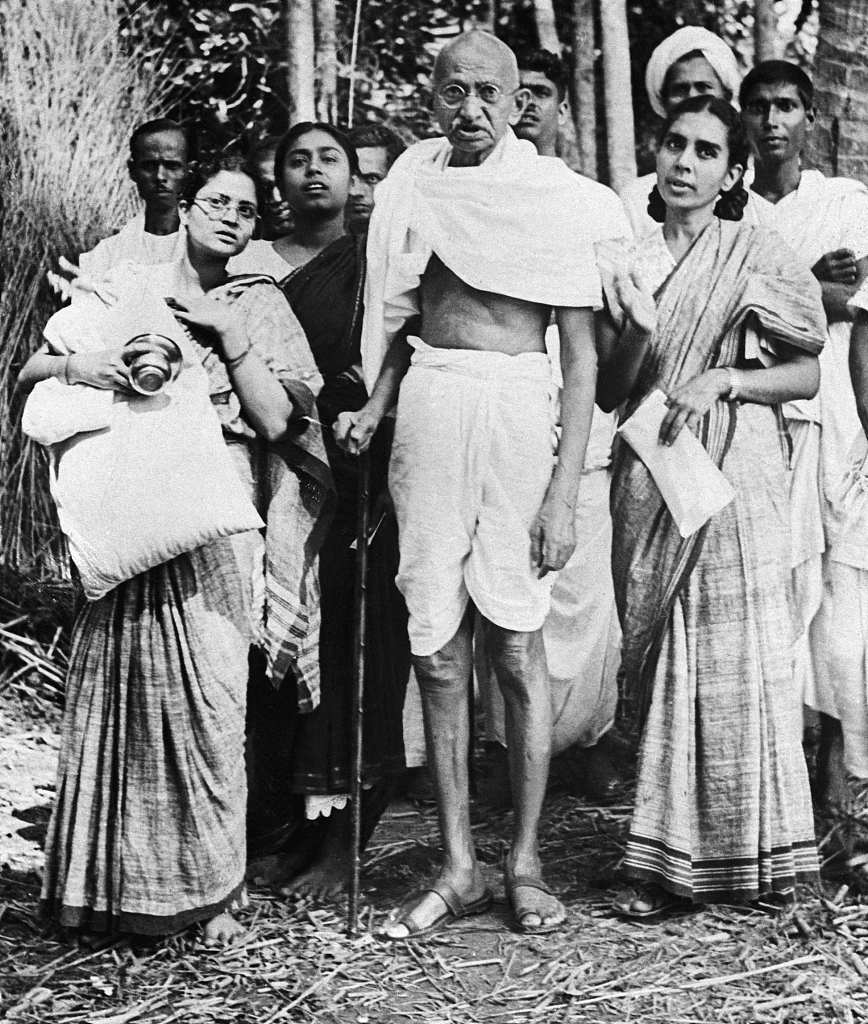
Mahatma Gandhi (C) with his granddaughter Ava (R) and his personal physician Dr. Sushila Nayar (L), January 1, 1930. /VCG Photo
Mahatma Gandhi (C) with his granddaughter Ava (R) and his personal physician Dr. Sushila Nayar (L), January 1, 1930. /VCG Photo
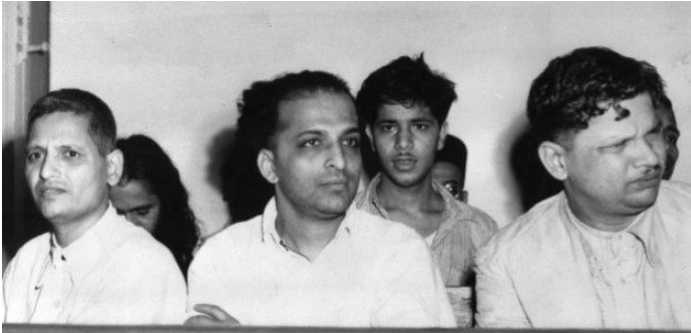
Nathuram Godse (L), Narayan Dattatraya Apte (C) and Vishnu Ramkrishna Karkare (R) during the Mahatma Gandhi assassination case trial at the Special Court in Red Fort Delhi, May 27, 1948. /AP Photo
Nathuram Godse (L), Narayan Dattatraya Apte (C) and Vishnu Ramkrishna Karkare (R) during the Mahatma Gandhi assassination case trial at the Special Court in Red Fort Delhi, May 27, 1948. /AP Photo
In May, Sadhavi Pragya, then a poll candidate from the ruling Bhartiya Janata Party called Godse a "patriot." She later issued an apology after the BJP condemned her remarks. Sadhvi, days later won the elections by a margin of over 350,000 votes.
On October 2, when many around the world including Indian Prime Minister Narendra Modi were paying homage to Gandhi on his 150th birth anniversary, #Godse_Amar_Rahe (Long Live Godse) was the top trend on Twitter in India.
"For me it's double hurt, it hurts me as an Indian who truly believes in the values of Bapu and it is also a private grief that I have to go through this personal pain because my ancestor is a public figure. It's hurt me even more because it's a patronizing campaign — which is not run by some lunatics but people who know that they would be rewarded for doing this because in the past such people have been rewarded," Tushar Gandhi told CGTN Digital.
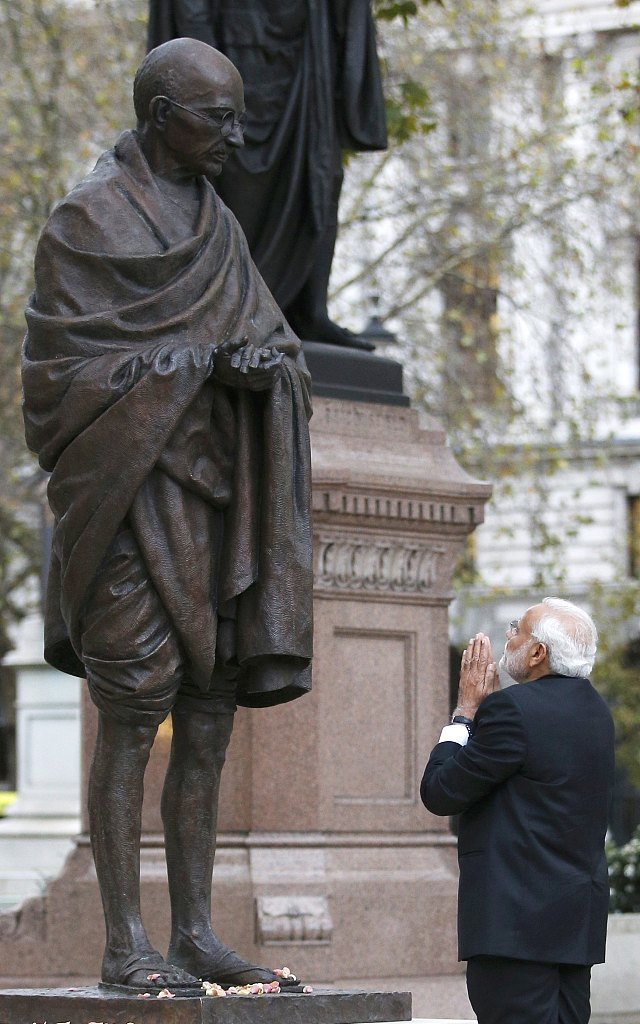
Indian Prime Minister Narendra Modi pays homage at the statue of Mahatma Gandhi at Parliament Square, in London, November 12, 2015. /VCG Photo
Indian Prime Minister Narendra Modi pays homage at the statue of Mahatma Gandhi at Parliament Square, in London, November 12, 2015. /VCG Photo
So, do these incidents indicate a trend?
"His name has been used for political gains even in the past, but today his name is being appropriated by people who conspired to murder him. These people are not even true to their own ideology," he replied.